Trail translator: They’re all talking “income inequality”
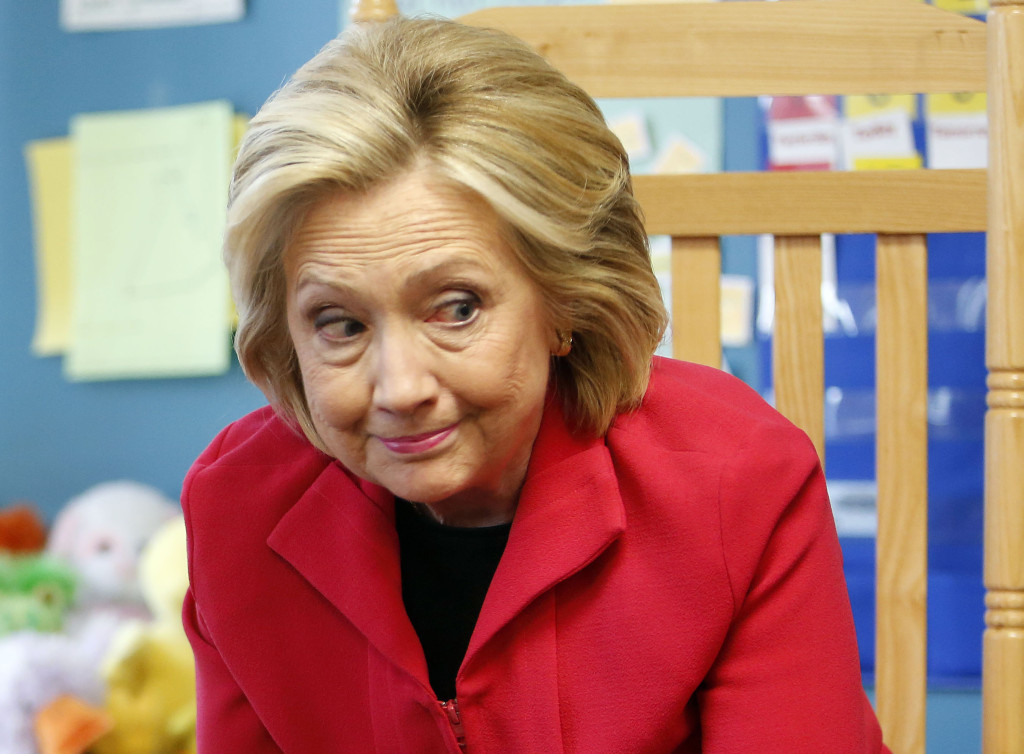
Of all the buzzwords and phrases popping up early in the presidential campaign, “income inequality” must be close to the top of the list. It’s not just Democrats insisting that the nation must deal with it firmly and fast. While Hillary Rodham Clinton and new primary opponent Sen. Bernie Sanders are hitting the idea hard, Republican candidates, too, are playing up the notion that people at the bottom of the economic ladder are getting a raw deal while the rich get richer. Since you’re sure to hear a lot more about income inequality during the next 18 months, here’s a closer look at what it means, where it came from and what the candidates want to do about it. • • • Definition, please In a nutshell, economic inequality refers to the yawning gap between the income of the richest Americans and everyone else. No one disputes that the gap exists, although there is debate about its size. There are all kinds of subtexts associated with this idea, among them: stagnating middle-class incomes, increasing economic power for the privileged few, barriers to upward mobility for the poor and a culture of cronyism in Washington that protects the well-connected. And that churns up feelings of envy, outrage, frustration and despair for candidates to tap into as they try to show they understand the economic angst of the middle class. • • • Origins The prominence of the issue has been building, off and on, for years, as the share of total income and wealth claimed by the richest Americans has grown. Incomes for the highest-earning 1 percent of Americans rose 31 percent from 2009 through 2012, after adjusting for inflation, according to data compiled by Emmanuel Saez, an economist at University of California, Berkeley. For everyone else, it inched up an average of 0.4 percent. The Occupy protest movement of 2011 and 2012 jump-started a global conversation about the wealth gap, with the rallying cry of “We are the 99 percent.” And everyone from Pope Francis to President Barack Obama picked up on it. In 2013, Obama called economic inequality “the defining challenge of our time.” • • • Look who’s talking Just about all the 2016 candidates are chattering about it. And when candidates describe the problem, it’s sometimes hard to distinguish Republicans from Democrats. See if you can guess who’s sounding off here: “The top 1 percent earn a higher share of our income nationally than any year since 1928. The people who have been hammered … are working men and women.” “While the average person is working longer hours for lower wages, we have seen a huge increase in income and wealth inequality, which is now reaching obscene levels.” “The economy is booming for people at the top. It is not booming for the bottom 90 percent of the workforce in America. The bottom 90 percent, which is most of America, has had stagnant wages for 40 years.” “The deck is still stacked in favor of those already at the top. And there’s something wrong with that. There’s something wrong when CEOs make 300 times more than the typical worker.” “Wage stagnation is happening at a time when the cost of everything is going up dramatically. And it’s not just that the cost of everything is going up, we have expenses we didn’t used to have.” “The policy aim of government absolutely should be that government should not contribute to income inequality.” Answers: 1. Republican Sen. Ted Cruz of Texas. 2. Sanders, a Vermont independent who’s running as a Democrat. 3. Republican Mike Huckabee, former governor of Arkansas. 4. Clinton. 5. Republican Sen. Marco Rubio of Florida. 6. Republican Sen. Rand Paul of Kentucky. • • • The solution? There will be huge debate on this over the next year and a half, and Republicans and Democrats offer far different solutions. In general, Republicans like to stress upward mobility — giving those at the bottom more opportunity to move up — rather than taking something away from those at the top. “The American people tend not to be envious people,” says Mike Needham, head of the conservative Heritage Action for America. “People are worried about their opportunity to succeed.” Democrats are inclined to look at increasing taxes for those at the top to allow government to do more for those below. “It’s very difficult to do much about the middle class and the poor without tapping some of the wealth and income at the very top, or at least changing the structure of the economy so that so much wealth and income don’t percolate upward,” says Robert Reich, who was Bill Clinton‘s labor secretary. Most of the candidates are still fleshing out their economic proposals. But they’ve already thrown plenty of ideas in the mix, circling back to classic debates over taxation and the proper role of government. Sanders wants to make the wealthy pay more taxes. Rubio’s pushing a big tax cut to spur growth. Clinton has criticized excessive CEO pay and wants to raise the minimum wage. Cruz wants a “simple flat tax.” Paul pushes “economic freedom zones” offering lower taxes in distressed areas. Former Florida Gov. Jeb Bush wants to give people more opportunities for “earned success.” Christie wants to cut income and corporate tax rates while changing deductions and credits. • • • Odds anything will change? Obama said Tuesday he hopes growing awareness of inequality will help bridge the ideological divide over how to address it. At the same time, progressive Democrats who want to close the gap released a wide-ranging policy agenda, with Sen. Elizabeth Warren of Massachusetts saying it was time to fight those who “want the game to stay rigged.” Skepticism abounds, though. Sanders questions whether Clinton or any of the Republicans are ready to take on the “big-money interests who control so much of our economy.” Paul thinks Democratic policies make income inequality worse. Carly Fiorina, the former technology executive who recently joined the GOP nomination race, says
Senate Democrats block action on president’s trade agenda
Senate Democrats dealt President Barack Obama a stinging setback on trade Tuesday, blocking efforts to begin a full-blown debate on his initiatives. The president’s supporters said they will try again, possibly starting in the House. But they were unable to sugar-coat a solid rebuke of a major Obama priority by members of his own party, some of whom served with him in the Senate. Only one Senate Democrat, Tom Carper of Delaware, voted for a GOP-crafted motion to start considering Obama’s request for “fast track” trade authority. Fast track would let the president present trade agreements that Congress could ratify or reject, but not amend. Proponents needed 60 votes to thwart a Democratic filibuster, but managed only 52 in the 100-member Senate. Tuesday’s vote highlighted the deep divide between Obama and the many congressional Democrats who say trade deals hurt U.S. jobs. Leading the fight against fast track are labor unions and liberal groups, which are crucial to many Democrats’ elections. Most Republican lawmakers support free-trade agreements. They were in the strange position Tuesday of losing a vote but seeing the Democratic president take the blame. “It is the president’s party,” said GOP Sen. Orrin Hatch of Utah. “It’s amazing to me that they would do this to the president on a bill of this magnitude.” Senate Majority Leader Mitch McConnell of Kentucky called the results “pretty shocking.” But Democratic Sen. Bill Nelson of Florida said, “Maybe what McConnell really wants to do is embarrass the president.” Several Democrats said Obama erred by pointedly criticizing a leading Democratic foe on trade, Sen. Elizabeth Warren of Massachusetts, in an interview with Yahoo News. Those Democrats said they bristled when Obama suggested Warren was poorly informed and politically motivated. Democratic senators said they also are tired of seeing the Democratic president cozy up to Republicans on trade. Most Republican lawmakers support trade agreements. But Obama must recruit a fair number of House and Senate Democrats to achieve his trade goals. Several Democrats say they will back fast track only if Republican leaders clear a path for three other trade measures. One, to renew the African Growth and Opportunity Act, is uncontroversial. The second calls for Trade Adjustment Assistance, which provides federal aid to workers displaced by trade agreements. Republicans don’t like it, but reluctantly acknowledge it’s the price for winning even modest Democratic support. The third bill, involving Customs enforcement, is the stickiest. It includes a measure to take actions against countries that keep their currency artificially low, which makes their exports more attractive. The Obama administration opposes the “currency manipulation” measure, saying it could invite international challenges to the Federal Reserve’s policies meant to boost the U.S. economy. McConnell said that only two of the bills — fast track and Trade Adjustment Assistance — would be the subject of initial votes, but senators would have ample chances to address the other two bills during the amendment process. Democrats met at midday and declared McConnell’s package unacceptable. Republished with permission of The Associated Press.
Terri Sewell hosts Obama trade chief Michael Froman for trade summit
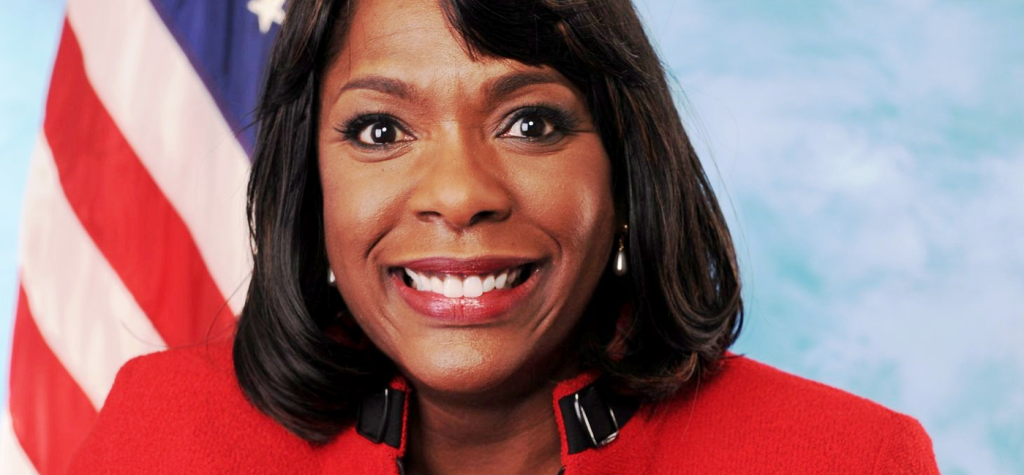
U.S. Rep. Terri Sewell says Alabama businesses and workers would benefit from expanding U.S. trade opportunities. Sewell invited U.S. Trade Representative Michael Froman, President Barack Obama’s chief official on international trade, to visit Alabama to discuss the importance of exports for the state economy. “Exports help drive Alabama’s economy,” Sewell said. “Alabama businesses exported $19.5 billion in merchandise last year, which supported more than 95,000 jobs. Access to foreign markets and fair trade policies that benefit American workers are integral, necessary components that will help Alabama exporters to continue to thrive and spur new job growth.” Froman said reducing taxes that the U.S. pays to export products from Alabama and other states, as well as improving labor standards abroad, were key to supporting jobs in the state. “By tearing down those barriers and raising the standards in other countries, we level the playing field,” Froman said. “And we know when we level the playing field, our workers, our farmers, our ranchers, and our small to medium-sized businesses can compete and win.” Alabama exports — transportation equipment, poultry, soybeans, and cotton — could face tariffs as high as 50 percent, Froman said. “If we can get rid of those taxes and we can eliminate those tariffs, right now 62 percent of all Alabama’s exports go to either the Asia Pacific or the European Union,” he said. “They can do so much more if they get rid of those other barriers. Every billion dollars of additional exports support up to 5,000 jobs. These are good, high-paying jobs.” The ambassador’s visit comes at a pivotal point in the Obama Administration’s battle with Congress over expanding the President’s authority to negotiate trade agreements. Politico reported that so far only 20 House Democrats have agreed to vote in favor of giving the president “fast-track” authority to negotiate trade agreements and that the bill has well below the votes needed on either side to pass in the House and Senate. The legislation would also grant the president authority to finish a sweeping trade deal with several Asian countries. The Trans-Pacific Partnership (TPP) has taken more than 10 years to negotiate and sets trade terms with 11 countries along the Pacific Rim, including Vietnam, Australia, Singapore, Malaysia and Japan. The group of nations has a combined gross domestic product of $28 billion and represents about 40 percent of the world economy. Sewell called the “fast track” or trade promotion authority a “hallmark” legislation that would provide a framework for the upcoming discussions over trade between the U.S., Asia, and the European Union. Passing the agreement is one of the president’s last major priorities, but so far Democrats have been unwilling to support the deal. “Congress has before it some big decisions when it comes to trade,” Sewell said. “Today has given me the opportunity to ask some very important, pressing questions from my constituents, especially labor, and to raise concerns that they’ve had. The ambassador has left me with a lot of food for thought.” Among those concerns, Sewell said, were that companies not be lured away by relaxed labor and regulatory standards in other countries. “I think it’s important that, especially in Alabama, where we’ve seen some trade agreements in the past have caused certain companies to close and take up shops overseas,” Sewell said. “I just want to make sure that the American workers are not left behind and so one of the big concerns that I had, and that some of the local labor unions had, was making sure that they had a seat at the table and that the negotiating would take into account their concerns as well.” In a prepared statement issued late Monday, U.S. Sen. Jeff Sessions called the fast track legislation “unenforceable” and said that the administration is seeking “blind faith” that the Trans-Pacific Partnership will increase U.S. jobs and wages. “Everyone supports trade. The question — the most fundamental question of all — is whether they are good trade deals, that advance America’s core national interests, or bad trade deals, that undermine them,” Sessions said. “Poorly negotiated trade deals, instead of opening new markets for our industries, tilt the playing field even further in their competitors’ direction. The result is not freer global trade, but more mercantilist market domination.” Congresswoman Sewell remains undecided on both TPP and TPA. U.S. Sens. Richard Shelby and Sessions voted against expanding trade promotion authority in 2002. It remains unclear whether Shelby will support the deal.
Mo Brooks joins GOP-backed challenge to Obama’s immigration policy
Alabama U.S. Rep. Mo Brooks joined an amicus brief to the U.S. 5th Circuit Court of Appeals filed by the American Center for Law and Justice on behalf of 26 states. The brief is appended to a federal lawsuit that asks the court for an injunction to stop the implementation of an executive order signed by President Barack Obama to halt the deportation of several categories of American residents who entered the country illegally. “By joining the amicus brief, we ask the courts to uphold the separation of powers, checks and balances, and the rule of law. I support the 26 plaintiff states, including the state of Alabama, that have taken the initiative to rein in Obama’s illegal and unconstitutional executive overreach,” Brooks said Monday in a prepared statement. In addition to the weight he lends the ACLJ suit, Brooks has introduced House Resolution 757 in the 113th Congress and House Resolution 11 in the 114th, which seek judgment action in federal court to determine whether Obama’s executive order violates the Constitution and federal immigration law. If the court agrees, then it requests injunctive relief and a writ of mandamus to force the president and the executive branch to obey immigration laws as passed by Congress “While the underlying reason for this fight is the financial well-being of American families, the lawsuit itself is, as the complaint states, ‘about the rule of law, presidential power, and the structural limits of the U.S. Constitution,’” Brooks said. Preempting criticism of his move as a mere ideological gesture, Brooks couched his signing on to the suit as an issue of good government and constitutional principle. “This is not a partisan issue,” Brooks said. “When one branch of the government unconstitutionally usurps the powers of another, it affects all Americans, because it threatens the very core of our system of checks and balances that has served our government, and America, so well for so long. If the president can unilaterally ‘change the law’ as he says he can, why, then, did America’s founders create Congress?”
In South Carolina, a Republican scramble to stand-out
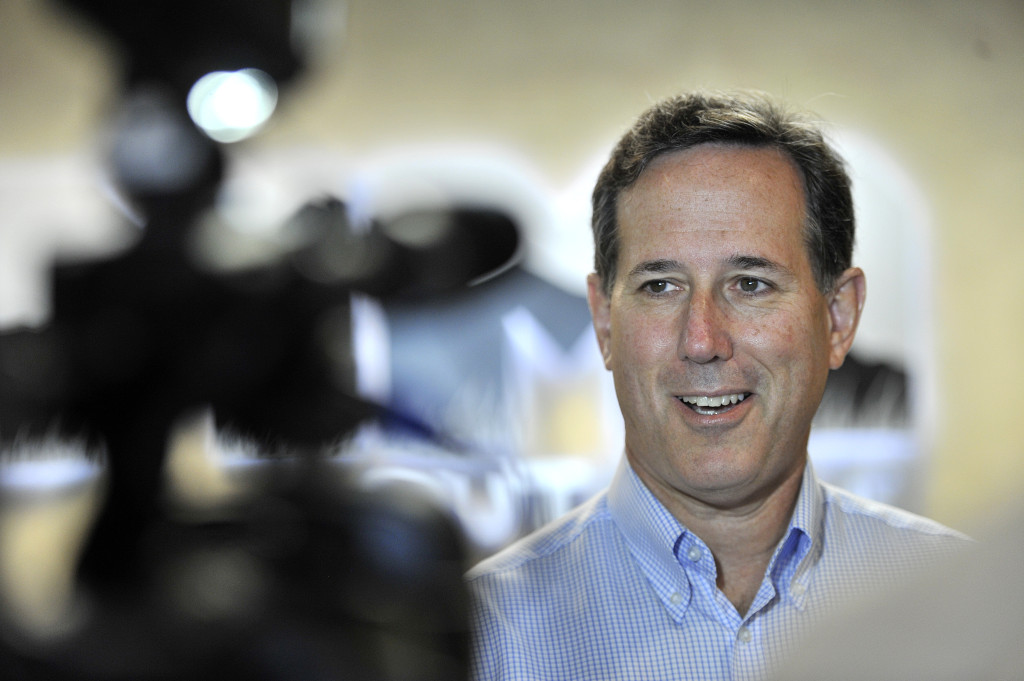
Republicans making their pitch to be the party’s 2016 presidential nominee aimed to out-do each other Saturday in arguing that President Barack Obama is a failed leader. But hitting Obama with the usual critiques – from his 2010 health care overhaul to allegations of missteps on foreign policy to the rise in the national debt during his time in office – also made it hard for the gaggle of White House aspirants to stand out during a forum in South Carolina hosted by the conservative group Citizens United. Wisconsin Gov. Scott Walker tried by touting his ability to beat whomever is nominated by the Democratic Party, reminding activists that he won three statewide elections in four years in a state twice carried by Obama. “The last time a Republican carried the state for president was 1984,” he said. “That’s a tough state.” He even took the crowd back to his decision to run for county executive in heavily Democratic Milwaukee County. “Never ever had there been a Republican in that spot before,” he said. Carly Fiorina, the former Hewlett-Packard CEO, continued her tactic of going straight at Hillary Rodham Clinton, the Democratic favorite for 2016. “She is not trustworthy, and she does not have a record of accomplishment,” Fiorina said. In an interview before his turn on stage, Louisiana Gov. Bobby Jindal pointed to his work on policy, saying he’s the only potential candidate in the field who has “spent the last 18 months coming up with detailed ideas on health care, on foreign policy, on energy.” Once on stage, Jindal spent considerable time touting his credentials as a social conservative, including his pushback against criticism from some in the business community over “religious liberty” laws that have become a flashpoint in the national debate over same-sex marriage. “Don’t even waste your breath trying to bully the governor of Louisiana,” Jindal said, repeating what he said was his message to corporate leaders. Rick Santorum, who won the Iowa caucuses in 2012 before fizzling out against eventual nominee Mitt Romney, warned that Republicans eager to retake the White House after Obama’s two terms in office must stay focused on reaching working-class voters. “We have to be a pro-worker party,” he said. “We have to be the party for a rising tide lifting all boats. There are millions and millions of Americans who have holes in those boats.” Florida Sen. Marco Rubio took a hard line on foreign policy, saying the nation must get tougher with terrorists. Adapting a line from the movie “Taken,” he said: “We will look for you. We will find you. And we will kill you.” Texas Sen. Ted Cruz trumpeted his unapologetic approach on Capitol Hill, where he helped engineer a partial government shutdown in 2013. And he told activists that they should compare his style with his rivals, all of whom insist they are conservative. “Have you had anyone up here today say, `I’m an establishment moderate who stands for nothing?’” he said. “So how do you tell the difference? The scriptures tell us, `You shall know them by their fruits.” That means, he said, asking candidates, “You say you believe these principles. When have you fought for them?” Former Texas Gov. Rick Perry let loose a series of broadsides at Obama and his policies, drawing cheers from the crowd for a withering critique that covered immigration, the Affordable Care Act, the Islamic State militant group and the federal budget. His bottom line: “We’ve seen gross incompetence. We’re here to declare that we’re not going to take it anymore.” Ben Carson, the retired neurosurgeon who, like Fiorina, announced his candidacy earlier this week, is running as the outsider. “I’m not a politician,” he said. “That’s what sets me apart.” Those not in South Carolina on Saturday included former Florida Gov. Jeb Bush, who delivered the commencement address at Liberty University in Virginia; Kentucky Sen. Rand Paul, who was campaigning in northern California; and former Arkansas Gov. Mike Huckabee, who was in South Carolina on Friday. Citizens United President David Bossie dismissed the idea that the large number of GOP candidates muddled their messages and called the wide field an advantage. “These men and women all believe in American exceptionalism,” Bossie said. He added that along with criticizing Obama, Republicans should focus their ire on Clinton – a point on which many in the crowd agreed. “Any one of them would be better than the disaster we’ve got now,” said Gary Gunderson of Abbeville, South Carolina. His wife, Margaret, chimed in: “Or Hillary.” Republished with permission of the Associated Press.
In South Carolina, a Republican scramble to stand out
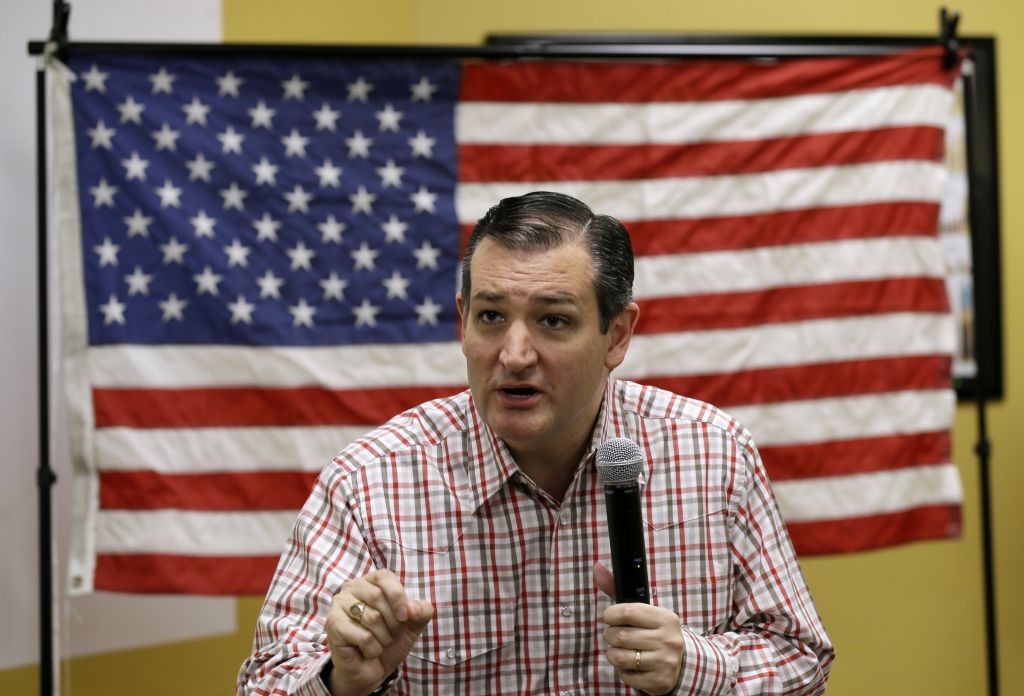
Republicans making their pitch to be the party’s 2016 presidential nominee aimed to out-do each other Saturday in arguing that President Barack Obama is a failed leader. But hitting Obama with the usual critiques — from his 2010 health care overhaul to allegations of missteps on foreign policy to the rise in the national debt during his time in office — also made it hard for the gaggle of White House aspirants to stand out during a forum in South Carolina hosted by the conservative group Citizens United. Wisconsin Gov. Scott Walker tried by touting his ability to beat whomever is nominated by the Democratic Party, reminding activists that he won three statewide elections in four years in a state twice carried by Obama. “The last time a Republican carried the state for president was 1984,” he said. “That’s a tough state.” He even took the crowd back to his decision to run for county executive in heavily Democratic Milwaukee County. “Never ever had there been a Republican in that spot before,” he said. Carly Fiorina, the former Hewlett-Packard CEO, continued her tactic of going straight at Hillary Rodham Clinton, the Democratic favorite for 2016. “She is not trustworthy, and she does not have a record of accomplishment,” Fiorina said. In an interview before his turn on stage, Louisiana Gov. Bobby Jindal pointed to his work on policy, saying he’s the only potential candidate in the field who has “spent the last 18 months coming up with detailed ideas on health care, on foreign policy, on energy.” Once on stage, Jindal spent considerable time touting his credentials as a social conservative, including his pushback against criticism from some in the business community over “religious liberty” laws that have become a flashpoint in the national debate over same-sex marriage. “Don’t even waste your breath trying to bully the governor of Louisiana,” Jindal said, repeating what he said was his message to corporate leaders. Rick Santorum, who won the Iowa caucuses in 2012 before fizzling out against eventual nominee Mitt Romney, warned that Republicans eager to retake the White House after Obama’s two terms in office must stay focused on reaching working-class voters. “We have to be a pro-worker party,” he said. “We have to be the party for a rising tide lifting all boats. There are millions and millions of Americans who have holes in those boats.” Florida Sen. Marco Rubio took a hard line on foreign policy, saying the nation must get tougher with terrorists. Adapting a line from the movie “Taken,” he said: “We will look for you. We will find you. And we will kill you.” Texas Sen. Ted Cruz trumpeted his unapologetic approach on Capitol Hill, where he helped engineer a partial government shutdown in 2013. And he told activists that they should compare his style with his rivals, all of whom insist they are conservative. “Have you had anyone up here today say, ‘I’m an establishment moderate who stands for nothing?’” he said. “So how do you tell the difference? The scriptures tell us, ‘You shall know them by their fruits.” That means, he said, asking candidates, “You say you believe these principles. When have you fought for them?” Former Texas Gov. Rick Perry let loose a series of broadsides at Obama and his policies, drawing cheers from the crowd for a withering critique that covered immigration, the Affordable Care Act, the Islamic State militant group and the federal budget. His bottom line: “We’ve seen gross incompetence. We’re here to declare that we’re not going to take it anymore.” Ben Carson, the retired neurosurgeon who, like Fiorina, announced his candidacy earlier this week, is running as the outsider. “I’m not a politician,” he said. “That’s what sets me apart.” Those not in South Carolina on Saturday included former Florida Gov. Jeb Bush, who delivered the commencement address at Liberty University in Virginia; Kentucky Sen. Rand Paul, who was campaigning in northern California; and former Arkansas Gov. Mike Huckabee, who was in South Carolina on Friday. Citizens United President David Bossie dismissed the idea that the large number of GOP candidates muddled their messages and called the wide field an advantage. “These men and women all believe in American exceptionalism,” Bossie said. He added that along with criticizing Obama, Republicans should focus their ire on Clinton — a point on which many in the crowd agreed. “Any one of them would be better than the disaster we’ve got now,” said Gary Gunderson of Abbeville, South Carolina. His wife, Margaret, chimed in: “Or Hillary.” Republished with permission of the Associated Press.
Michelle Obama addresses Tuskegee University graduates
Michelle Obama on Saturday invoked the storied history of Tuskegee University as she urged new graduates to soar to their futures, saying the past provides a blueprint for a country still struggling with the “age-old problems” of discrimination and race. The first lady gave the commencement address at the historically black university in Alabama. Obama described how the Tuskegee Airmen, the famed first African-American pilots of World War II, endured humiliating slights as they shattered racial stereotypes about the capabilities of black men and how the university’s students in the 1800’s made bricks by hand to construct campus buildings so future generations could study there. “Generation after generation, students here have shown that same grit, that same resilience to soar past obstacles and outrages — past the threat of countryside lynchings; past the humiliation of Jim Crow; past the turmoil of the Civil Rights era. And then they went on to become scientists, engineers, nurses and teachers in communities all across the country — and continued to lift others up along the way,” Obama said. The defining story of Tuskegee is the story of rising hopes and fortunes for all African Americans. And now, graduates, it’s your turn to take up that cause,” Obama said of the university founded in 1881 by Booker T. Washington. The first lady, taking head on the issue of racial discrimination, mentioned the strife that has occurred in Baltimore and Ferguson – and the slights she and the president have endured – as she addressed the school’s 500 mostly African-American graduates. “The road ahead is not going to be easy. It never is, especially for folks like you and me. Because while we’ve come so far, the truth is those age-old problems are stubborn, and they haven’t fully gone away,” Obama said. The first lady said she and President Barack Obama have dealt with the sting of daily slights through their entire lives. “The people at formal events who assumed you were the help and those that have questioned our intelligence, our honesty and even our love of this country.” She said those little indignities are minimal compared to “nagging worries that you are going to get stopped or pulled over for absolutely no reason” or the “agony of sending your kids to schools that may no longer be separate, but are far from equal.” Obama said the frustration is “rooted in decades of structural challenges that have made too many folks feel frustrated and invisible. And those feelings are playing out in communities like Baltimore and Ferguson and so many others across this country.” But those frustrations are not an excuse to give in to despair and anger, Obama said. She said history provides a “blueprint” for moving forward through politics and voting and education. “Those Airmen, who rose above brutal discrimination, they did it so the world could see just how high black folks could soar. That’s the spirit we’ve got to summon to take on the challenges we face today,” Obama said. Like the students who made bricks so future generations could attend college, Obama challenged students to do their part, mentoring children, volunteering at food banks and after-school programs and helping others achieve their college dreams. Obama became the second first lady to visit the private school. Eleanor Roosevelt was the first in 1941, when she flew with a black Army pilot to show support for the famed Tuskegee Airmen. A crowd of nearly 4,000 heard the first lady’s remarks during graduation. Tickets were largely limited to family members of the 500 graduates. Sarah Jordan, 21, had her mortar board emblazoned with “Law School Bound” and decorated in shiny pink and black. The Pasadena native is headed back to California for law school after getting her English degree Saturday. “This is such a dream come true for me to have her here. She’s a role model for everyone,” Jordan said. “It means everything especially because I am an aspiring lawyer. I definitely look up to her,” Jordan said. Obama is a graduate of Harvard Law School. The first lady described the anxiety and criticism she initially endured over crafting her role as first lady, and how she learned to put it aside. She said a cable news program once called her “Obama’s Baby Mama” and that her self-described primary job as Mom might not be what some want to hear from an Ivy League-educated lawyer. She urged graduates to likewise put aside negative voices and stay true to themselves and their dreams in deciding their paths. “No matter what path you choose, I want to make sure that it is you choosing it and not someone else,” Obama said. The Tuskegee speech is one of three commencement addresses Obama will give this spring. The first lady last visited Alabama in March. She accompanied President Obama and their two daughters to Selma for the 50th anniversary of the Selma-to-Montgomery voting rights march. Republished with permission of the Associated Press.
Jeb Bush, Hillary Clinton take different tracks on potential matchup
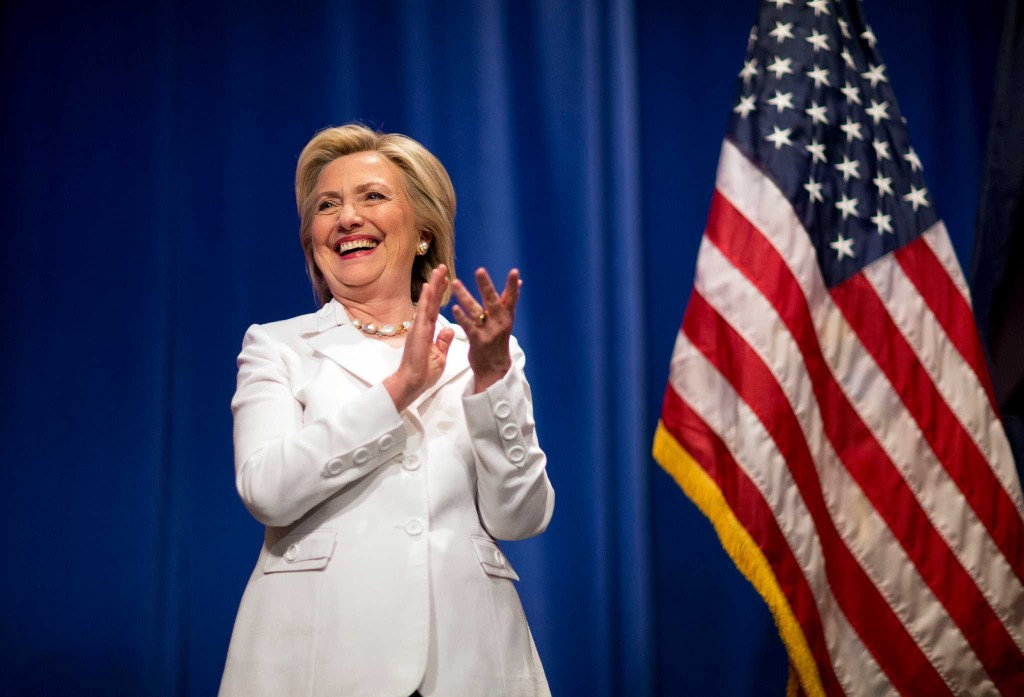
To judge them solely by their travels during the past month, you might think Jeb Bush has already plunged into the general election and Hillary Rodham Clinton has a serious fight on her hands for the Democratic nomination. The conventional thinking, though, is quite the opposite: He’s got a real primary race to settle first and she doesn’t. Bush, who has yet to declare his candidacy for the Republican nomination, has been stopping in states far from the early testing grounds of Iowa and New Hampshire. In the past month, he’s made appearances in Ohio, North Carolina and Colorado, all crucial general election states. On Saturday, he’ll be in Virginia, which will also be hotly contested in November 2016, even as most of his Republican nomination rivals are appearing in South Carolina: an important state in the primary race. “It’s a conscious effort, as he goes through the consideration process, to talk to and hear from people across the board,” Bush spokesman Tim Miller said. “That means in the early primary states and other states that would play a role in the process.” Bush’s strategy carries potential risks. Voters in early primary and caucus states are used to personal attention from candidates and could see Bush’s apparent flirtation with the general election as premature. Clinton, in contrast, is narrowly focusing her travel schedule on the first four states in the primaries, suggesting she wants voters to know she’s taking nothing for granted despite her dominant position in the party. To be sure, Bush isn’t avoiding the early states. He’s made visits to Iowa and New Hampshire, as well as South Carolina and Nevada, which round out the first four primary contests, and is headed back to Nevada and Iowa next week. Also, he does not have paid staff on the ground in the battleground states. But a candidate’s time remains one of any campaign’s most valuable assets and how and where the candidate spends it provides the clearest glimpse into their strategy. Bush’s relentless travel schedule has been largely driven by his aggressive fundraising campaign. But he took time out in Ohio last month to speak to the influential Ohio Chamber of Commerce conference, a coveted speaking engagement in a perennial swing state. This weekend, Bush will give the commencement address at Liberty University in Virginia, a state that Democrat Barack Obama carried twice. In just the past month, Bush has also spoken in Colorado and North Carolina. Ohio, Virginia, Colorado and North Carolina were each decided by less than five percentage points in the 2012 election, and are expected to be pivotal in 2016. Since announcing her campaign in early April, Clinton has limited her campaign appearances to Iowa, New Hampshire and Nevada. She also plans to travel to South Carolina in the coming weeks. It’s not a liability for Bush to dip a toe into a key fall election state, because such travel is still a priority, said veteran GOP presidential adviser Charlie Black. “Your first driving force is fundraising,” he said, referring to travel plans. “Second is early-primary states and third is swing states. Sometimes it’s a major speech, or a national speech that’s driving them.” Black presumed that Clinton would alter her schedule under the right conditions. “If there were a NARAL conference in St. Louis, you can bet she’d be there,” he said, referring to the pro-abortion-rights group. Clinton’s campaign is initially raising money for the primaries, not the general election. But it’s clear she is keeping an eye on Bush, who is viewed by many of her advisers as the toughest potential GOP candidate in a general election. For example, Clinton had planned to wait until May to start headlining fundraising events. However, she told aides that because Bush was raising money at such an aggressive pace, she needed to pick up her pace on that front. Fundraisers were added to her April schedule in New York and Washington. Campaign officials said Clinton’s travel plans haven’t been swayed by Bush’s flirtation with general election states. They don’t expect her to appear in states such as Ohio until late summer at the earliest. But her team is looking for other ways to engage the general election states. Campaign chairman John Podesta met donors in Colorado on Monday and is expected to make similar stops in states that will be crucial on Election Day. The campaign has also pledged to have employees in all the states, working with volunteers and organizing efforts to get out the vote. While campaign officials said those efforts are currently focused on the primaries, they are also a way to start building a foundation for the general election. Republished with permission of The Associated Press.
Alabama congressional delegation largely supportive of Benghazi Select Committee
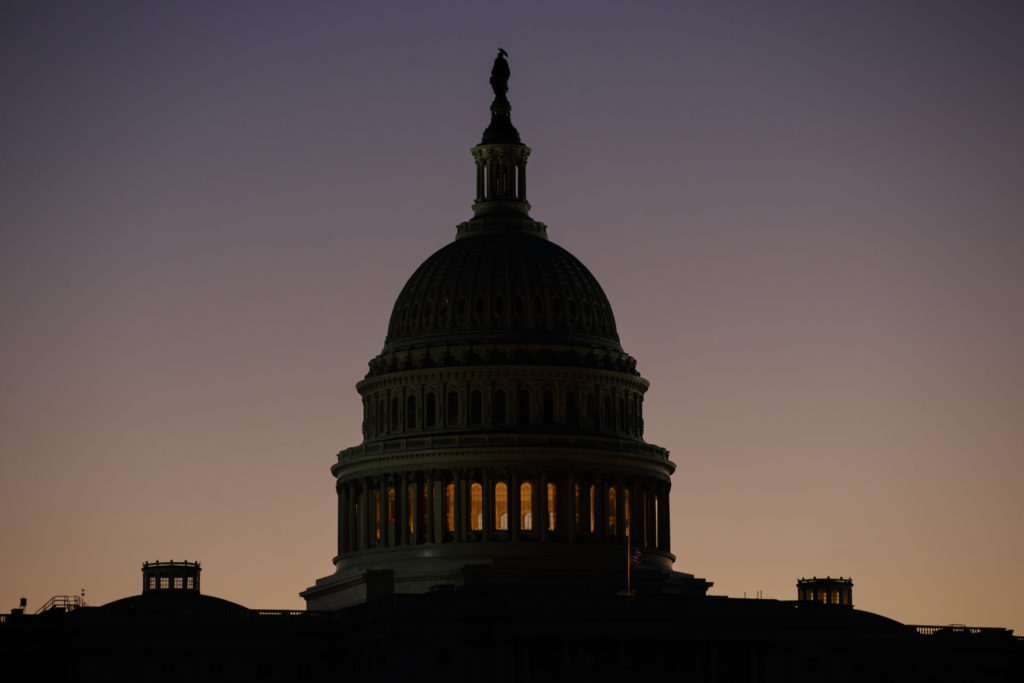
In the wake of recent news that former Secretary of State Hillary Clinton has agreed to testify before a U.S. House Select Committee investigating the 2012 attacks on an American compound in Benghazi, some Republican members of Congress are licking their chops at the prospect of getting a good crack at the 2016 Democratic presidential frontrunner over an issue that remains on the front burner for conservatives. Among them is U.S. Rep. Martha Roby of Alabama’s Wiregrass and Montgomery-based 2nd Congressional District. Roby is one of seven Republican members chosen for the committee. “It doesn’t surprise me that the Clinton lawyers want to limit her testimony,” Roby told Alabama Today on Tuesday, responding to corollary news that Clinton has refused to testify twice as requested by the committee, conceding to only one hotly anticipated appearance. “But, remember, it was her decision, not ours, to set up a secret email system in a calculated attempt to flout government transparency requirements. And there are many legitimate questions that remain unanswered.” She expressed her enthusiasm that South Carolina U.S. Rep. Trey Gowdy — who has been vocal in his criticisms of Clinton over Benghazi — may get to oversee a panel devoted to extracting answers from the former New York senator in light of her use of a private email address while serving on President Barack Obama‘s Cabinet. “I know that Chairman Gowdy is taking this offer into consideration and we will see what happens going forward. Chairman Gowdy has been a deliberate, effective leader of this Select Committee and we are behind him 100 percent,” Roby said. U.S. Reps. Bradley Byrne, Mike Rogers, Robert Aderholt and Mo Brooks — Republicans all — each voted “yea” and co-sponsored the federal legislation that created the committee. Democrat Terri Sewell, for her part, voted against it. Rep. Gary Palmer wasn’t yet elected when the House created the Select Committee. He did tell Birmingham talk radio host Matt Murphy in March he thinks “we should subpoena the server and see what’s on it.” Palmer also told the Birmingham Morning News, “I have zero confidence that this Justice Department will do anything under Obama [concerning Clinton’s emails].”
Committee OKs payday loan regulation
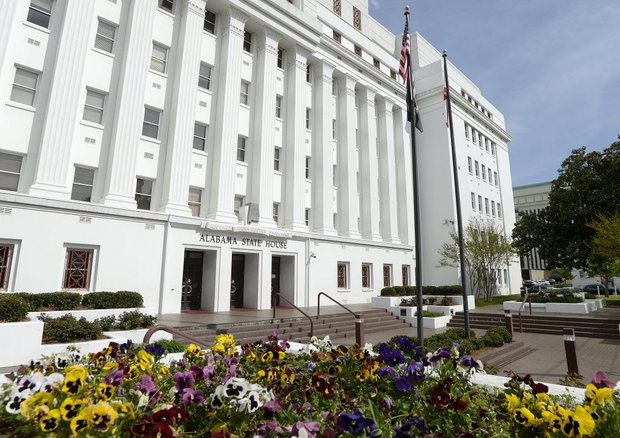
An Alabama House committee on Wednesday approved new restrictions on payday loans that short-term lenders can offer to consumers in need of quick cash. Trussville Republican Rep. Danny Garrett said the loans “trap borrowers in a debt cycle” when people renew the loan, or take out new ones when they can’t pay off the first. Garrett’s legislation would give borrowers more time to repay a loan, taking the window from 14 days to six months. He said that would reduce the effective annual interest rate from more than 456 percent to 36 percent. “We’re trying to get people who are in a debt trap, who are in a cycle of being not able to get out of debt, to not be sucked into this,” Garrett said. The committee approval ended a losing streak for reform advocates who for years have urged the state to crack down on the payday loan industry. Alabama Appleseed’s Legal Director Shay Farley said the longer time frame would give borrowers a “fighting chance to pay the loan.” Payday loans are short-term loans of up to $500. Borrowers pay a fee of up to $17.50 per $100 borrowed. “These are exactly the kind of reforms that are needed,” Farley said. “I asked how many people among us who could repay $587 in 14 days. The answer is you can’t.” Payday lenders have argued that their stores provide a service to people who don’t have other means to access cash. Max Wood, a payday store owner and president of Borrow Smart Alabama, said the stores could not afford to stay open under the change and said it was attempt to “eliminate the industry.” “They’ve tried to shut us down using different ideas and concepts,” Wood said. Garrett said people with poor credit need a way to access to loans. “There needs to be a fair way, a way that doesn’t exploit people and a way that doesn’t depend on usury,” Garrett said. The bill now goes before the 105-member House of Representatives. The legislation has a bipartisan coalition of more than 30 lawmakers signed on as co-sponsors, but still faces an uncertain outlook. Republican Rep. Mike Hill of Columbiana noted the possibility of federal regulations on the industry. “I think we need to think about this longer and decide what is the right direction to go. I’m not saying we don’t need some reform,” Hill said. President Barack Obama put a spotlight on the payday loan industry in a visit to Birmingham in March. His visit came as the Consumer Financial Protection Bureau outlined a proposal to put new limits on the industry. Republished with permission of The Associated Press.
Mike Huckabee poised to launch 2nd White House bid
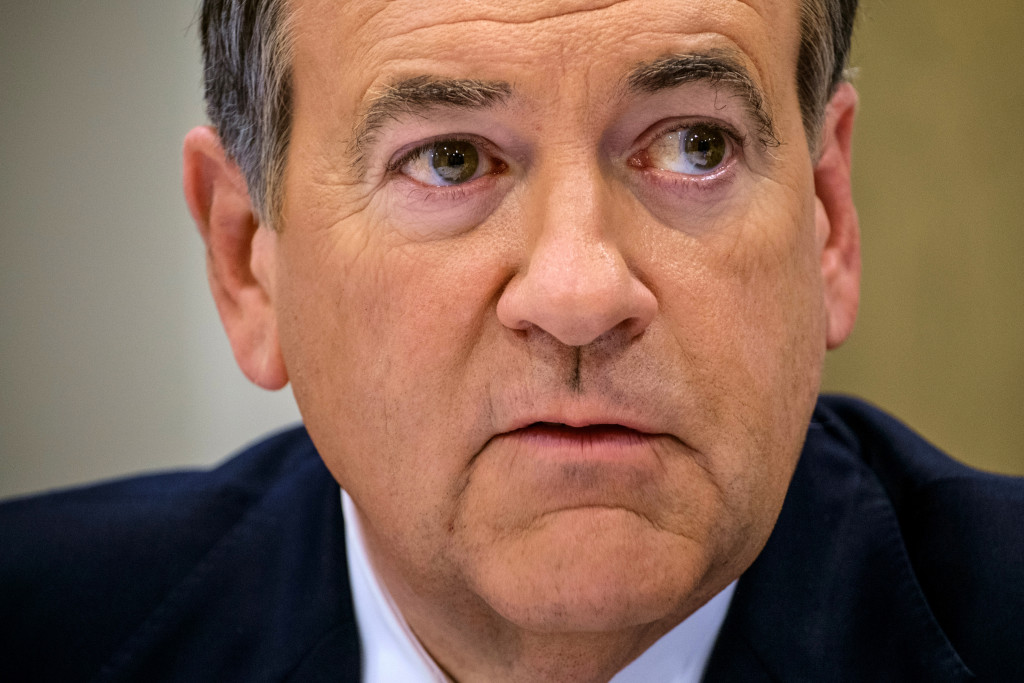
Former Arkansas Gov. Mike Huckabee is preparing another bid for the Republican presidential nomination, eight years after his first efforts to expand on the support of evangelical Christians helped him win eight states in the 2008 primaries. The ordained Baptist minister turned politician returns Tuesday to his hometown of Hope, Ark. — the same small town where former President Bill Clinton was born — to make official what the local newspaper called “the worst-kept secret” in the state. In a strategy aimed at working-class cultural conservatives, Huckabee and his aides say his second run would pitch the candidate as an economic populist and foreign affairs hawk who holds deeply conservative views on social issues such as abortion and gay marriage. Huckabee, 59, also plans to pitch that he is the best Republican to take on Hillary Rodham Clinton, the front-runner for the Democratic nomination who spent more than a decade as first lady of Arkansas. In a recent campaign video, Huckabee argued that in his more than 10 years as governor, he took on Democrats in “Bill Clinton’s Arkansas” after candidate Bill Clinton won election to the White House in 1992. “Every day in my life in politics was a fight,” Huckabee says in the video, released as a preview of his Tuesday announcement. “But any drunken redneck can walk into a bar and start a fight. A leader only starts a fight he’s prepared to finish.” Huckabee advocates a national consumption tax, which is similar to a sales tax, to replace the existing federal taxes on personal income and payrolls. He rejects calls for a minimum wage increase, saying his proposals will yield a “maximum wage” for workers. On immigration, he insists on a secure border and bemoans the presence of millions of people who are living in the country illegally, though he favors a creating a path to citizenship for children of immigrant parents who brought them to the U.S. illegally. Like other Republican White House hopefuls, Huckabee is sharply critical of President Barack Obama‘s foreign policy. He has called for “bombing the daylights” out of Islamic State targets in the Middle East, though he says American troops should be deployed to the region only as part of an international coalition that includes nations such as Saudi Arabia and Jordan. But whatever the issue, Huckabee — an author and former Fox News host — wraps his appeal as a pitch to everyday Americans who he says “don’t feel like anybody understands or knows who they are, much less cares what’s happening to them.” “One thing that has to happen in America is moving the power away from Washington, where people are so disconnected from the way that so many ordinary Americans live,” Huckabee says in another recent video. Huckabee’s potential strength among the growing number of Republican candidates rests with cultural conservatives who wield strong influence in the party’s nominating process. Evangelical Christian voters helped Huckabee win the Iowa caucuses in 2008 and finish a strong second in South Carolina, the largest of the early-voting states. Huckabee would need to replicate that early success to create an opening to build a wider coalition and compete deep into the primary schedule. Huckabee is the third major Republican to enter the race this week. Retired neurosurgeon Ben Carson and former technology executive Carly Fiorina launched their campaigns Monday. Republished with permission of The Associated Press. Photo Credit: AP Photo/J. Pat Carter
Conservative group calls on governor to reject federal Ex-Im Bank
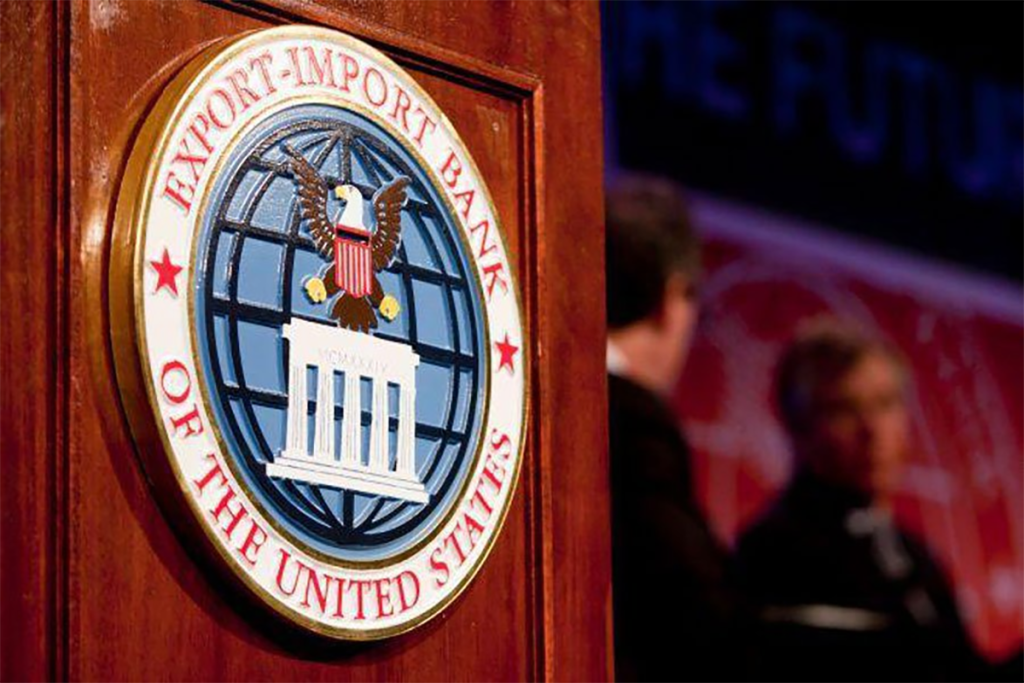
In a letter circulated by Rainy Day Patriots, executive director Zan Green and state co-chair Ann Eubank chided Gov. Robert Bentley for his support for the 71-year old Export-Import bank, a trade credit agency created by Congress to facilitate international commerce. The group called the institution “a fund for corporate welfare,” and echoed sentiments from President Barack Obama who has opposed the extension of the bank’s charter. The group also praised Alabama U.S. Rep. Gary Palmer for opposing the bank as well, saying it is a relic of the past that no longer serves a legitimate public purpose, and instead has become a piggy bank for governmental financial adventures. “The bank largely benefits large corporations that shell out millions for multitudes of lobbyists to descend upon the lawmakers and bureaucrats in DC to secure funding for their exports — something that most small business owners cannot afford to do,” Green and Eubanks wrote. “For example, the bank loaned nearly half a billion dollars to First Solar — to sell solar panels to itself. It is past time for the bank to expire.” The group also criticized the other members of Alabama’s congressional delegation, linking to an item on the website for the conservative Heritage Foundation’s Action for America organization that lists 83 House members who have publicly voiced their opposition to the bank’s continued existence. The Rainy Day Patriots likened their efforts to that of the state Senate, which roundly rejected Bentley’s support for expanding Medicaid in the state to draw down federal healthcare dollars, a deeply unpopular position among state Republicans. “Our Alabama congressmen should reject Governor Bentley’s advice on the Ex-Im Bank, just as our State Senate resoundingly rejected Governor Bentley’s desire to expand Medicaid. Congressman Palmer deserves our gratitude, and it’s time for the rest of Alabama’s congressmen to join him,” the letter concluded.


